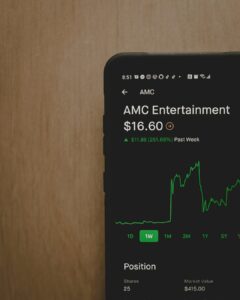Which is Better: Forex Trading or Stock Trading? Pros and Cons
When it comes to investing, two popular options are forex trading and stock trading. Both offer potential for profit, but they operate in different ways and come with their own pros and cons. In this article, we will explore the differences between forex trading and stock trading to help you decide which one is better suited to your investment goals.
Forex trading, also known as foreign exchange trading, involves buying and selling currencies on the foreign exchange market. Stock trading, on the other hand, refers to buying and selling shares of publicly traded companies on the stock market. Let’s delve into the pros and cons of each to see which option may be more suitable for you.
Pros of Forex Trading:
1. High liquidity: The forex market is the largest and most liquid financial market in the world. It operates 24 hours a day, five days a week, allowing traders to enter and exit positions easily. This high liquidity means that there is always a buyer or seller available, which helps to prevent price manipulation.
2. Leverage: Forex trading allows for high leverage, meaning you can control a larger position with a smaller amount of capital. This can amplify potential profits, but it also magnifies potential losses, making risk management crucial.
3. Diverse trading opportunities: Forex trading offers a wide range of currency pairs to trade, giving you the opportunity to diversify your portfolio and take advantage of global economic trends. This allows for more potential trading opportunities compared to the limited number of stocks available on the stock market.
Cons of Forex Trading:
1. High volatility: The forex market is known for its high volatility, meaning that currency prices can fluctuate rapidly. While this volatility can present opportunities for profit, it also increases the risk of losses. Traders need to be prepared for sudden market movements and have effective risk management strategies in place.
2. Complex market: Understanding the forex market and its intricacies can be challenging for beginners. Factors such as economic indicators, geopolitical events, and central bank decisions can all impact currency prices. It requires a strong understanding of fundamental and technical analysis to make informed trading decisions.
3. Lack of regulation: Unlike the stock market, which is highly regulated, the forex market is decentralized and operates across various jurisdictions. This lack of regulation can expose traders to potential fraud and scams, making it crucial to choose a reputable forex broker.
Pros of Stock Trading:
1. Ownership in companies: When you buy stocks, you become a partial owner of the company. This can provide you with voting rights and the potential to receive dividends, which are a share of the company’s profits. Stock trading allows you to invest in companies you believe in and potentially benefit from their success.
2. Diverse investment options: The stock market offers a wide range of investment options, from blue-chip stocks of established companies to small-cap stocks of emerging businesses. This diversity allows you to build a portfolio that aligns with your investment goals and risk tolerance.
3. Access to information: The stock market is highly regulated, and companies are required to disclose financial information to the public. This transparency gives investors access to a wealth of information that can help them make informed investment decisions.
Cons of Stock Trading:
1. Market hours: Unlike the forex market, the stock market operates during specific hours, usually from 9:30 am to 4:00 pm in the U.S. This limited trading window can be a disadvantage for traders who prefer flexibility and the ability to enter and exit positions at any time.
2. Lower leverage: Compared to forex trading, stock trading generally offers lower leverage. This means you need more capital to control a larger position. While this can help mitigate potential losses, it also limits the potential for substantial profits.
3. Market manipulation: While the stock market is regulated, there have been instances of market manipulation and insider trading. This can impact stock prices and expose investors to unfair practices. Staying informed and conducting thorough research is essential to minimize the risk of falling victim to market manipulation.
In conclusion, both forex trading and stock trading offer potential for profit, but they differ in terms of liquidity, leverage, trading opportunities, ownership, and regulation. Forex trading provides high liquidity, diverse trading opportunities, and the potential for high leverage. However, it also comes with high volatility, complexity, and a lack of regulation. Stock trading offers ownership in companies, diverse investment options, and access to information, but it has limited trading hours, lower leverage, and the risk of market manipulation.
Ultimately, the choice between forex trading and stock trading depends on your investment goals, risk tolerance, and understanding of the markets. It is recommended to educate yourself thoroughly, seek professional advice, and practice with demo accounts before committing real capital to either market.





